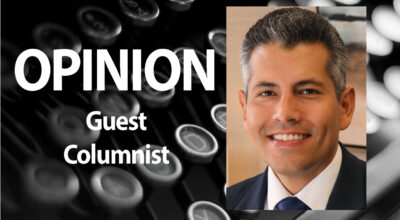M. D. Anderson is a good case study
Published 9:55 am Monday, February 6, 2017
Editorial by Bobby Tingle
The University of Texas MD Anderson Cancer Center in Houston has reduced their workforce in an attempt to curtail their losses.
This hospital is world renowned for its treatment, care, expertise and research all in the pursuit of treating cancer patients while searching for a cure to eradicate this disease.
According to reports by several news sources, MD Anderson has experienced financial shortfalls recently. Their circumstances led first to cuts in operating expenses to balance the books. When those measures failed they had to resort to a reduction of their workforce.
What makes this situation compelling is the discussion in Orange County as we pursue a hospital district.
MD Anderson has such a good reputation. They are well known, respected and patients seek the care they provide.
Yet in light of the demand for their service, financial shortfalls have forced curtailment of staff.
Let’s hope they are able to balance the books and continue to provide the care cancer patients depend on.
So what can we learn from their situation? Did they do a poor job of managing expenses? Have revenue sources dwindled? Has their reputation tarnished reducing the demand for their service?
As a nation, we have high expectations of our health care industry. We demand quality care, in a timely manner, tailored to our specific needs and at a reasonable price. It was my perception, MD Anderson delivered on those demands.
Thomas Sowell in his book, Basic Economics, explains in an understandable way the basic forces in play as market activity exerts its will on an economy.
His explanation of the difference between costs and price may provide useful information.
Often, price and costs are confused according to Sowell.
Consider the EpiPen, which has recently been in the news, in part because of the extreme cost to the consumer. Generally speaking, the EpiPen manufacturer came under serious scrutiny for the price they set for consumers to purchase their product.
The EpiPen is in high demand. It is designed to provide immediate relief to patients who suffer from the high possibility of severe life threatening allergic reactions.
Understandably, patients in need of the EpiPen, want this life saving tool. When the manufacturer raised the price recently consumers and consumer advocates cried foul.
What does it cost to produce an EpiPen? What does it cost to provide cancer treatment at a world-renowned hospital? Does the cost of a product or service determine the price consumers must pay?
According to Sowell, the cost of the product or service is the basis for determining price.
My Dad fired my Mom from a job she never wanted in the first place. He loved to buy watermelons and pecans and sell them on the side of the road or at local businesses. One year, the pecans he had for sale did not meet up to my Mom’s standards. Unfortunately, she answered a phone call one day from a customer who wanted to purchase some of his substandard product. She agreed to sell the customer pecans, but rather than sell from the stock on hand she bought pecans from another source. She paid more to acquire the product than the price she sold the pecans to my Dad’s customer.
He decided that was a bad business model and forbid her to ever work for him again.
She was relieved.
It seems rather simple. In order to remain viable a retailer, manufacturer or health care provider must charge customers for the product or service they provide. The amount charged, at a minimum, must be more than it cost to provide the product or service. The provider must also consider their long-term viability as well and charge enough over their costs to provide for research, development, maintenance and profit.
MD Anderson’s costs exceeded the price they charged and the shortfall led to the expense cuts and eventual layoffs.
MD Anderson’s case, if studied, could provide insight for Orange County. We want a world-renowned health care facility whose service is in high demand. The issue of costs and prices charged must be addressed to fulfill that goal.
Bobby Tingle is publisher of The Orange Leader. You can reach him at bobby.tingle@orangeleader.com.





